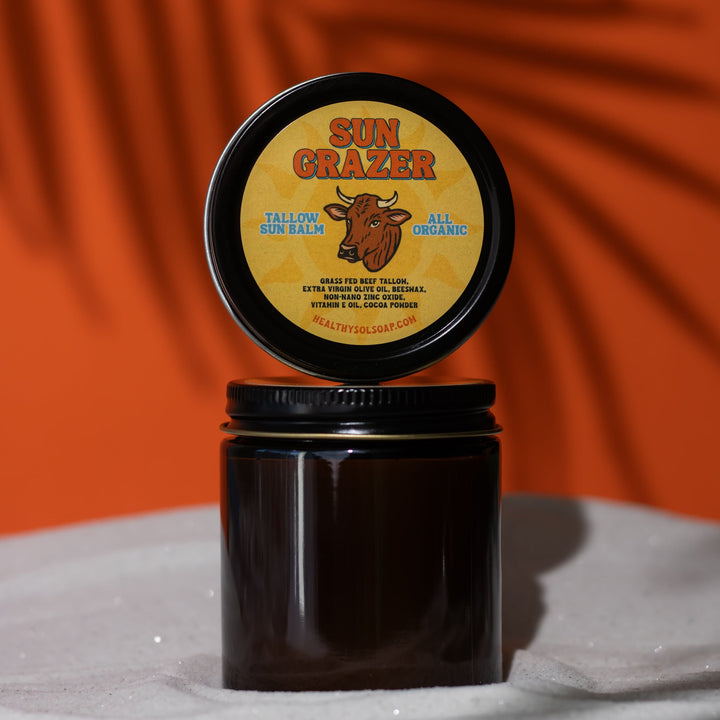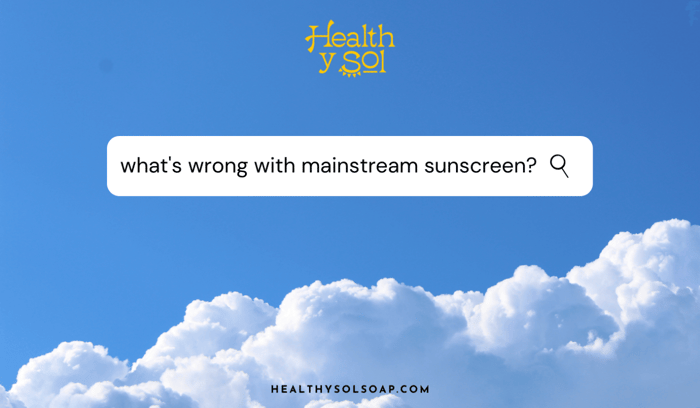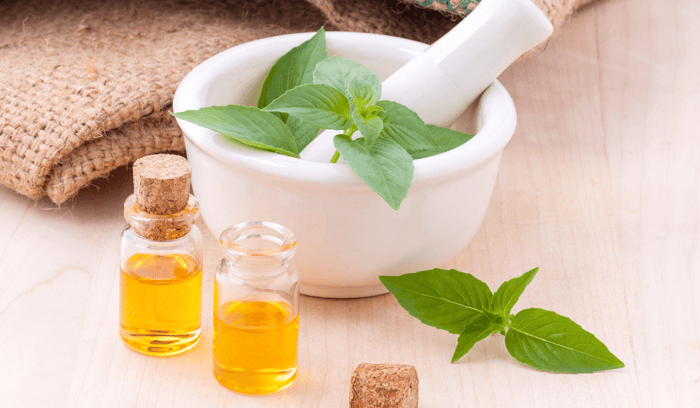What's wrong with mainstream sunscreen? You may have heard some rumors floating around of why sunscreen is harmful for your health. Unfortunately- they're true. In fact, a number of sunscreens have been recalled and are under class action lawsuits for containing harmful ingredients. To learn more about these harmful ingredients hiding in your tropical coconut smelling sunscreen, keep reading.
Dangerous Chemicals
Many conventional sunscreens contain chemicals that can be harmful to both humans and the environment. Common chemicals found in sunscreens have been linked to hormone disruption and have been found to damage coral reefs.
- Oxybenzone
- Octinoxate
- Homosalate
- Octisalate
- Octocrylene
- Avobenzone
All of these ingredients fail to be considered safe by the FDA, and many have been regulated or outright banned in other countries. Except for Hawaii, they are still allowed to be used in sunscreen products in the US.
Fragrances and Preservatives
While the active ingredients in sunscreens have the most potential to do harm to your body, the inactive ingredients list is another cause for concern in conventional sunscreens.
In order to keep unstable chemicals from breaking down, there are dozens of synthetic preservatives used in order to maintain the integrity of sunscreen products.
These preservatives, along with parabens used for fragrance, are an issue for people with skin sensitivities and have potential hormone disrupting effects.
Absorption Into the Skin
Some chemicals in conventional sunscreens can be absorbed into the skin and enter the bloodstream. This can lead to potential health risks, as these chemicals can accumulate in the body over time.
When sunscreen is applied to the skin, it is meant to form a protective barrier that absorbs or reflects UV radiation. However, some of the active ingredients in sunscreens, such as oxybenzone and octinoxate, can be absorbed into the skin and then enter the bloodstream. Once these ingredients enter the bloodstream, they can circulate throughout the body and cause harm.
While the amount of absorption depends on several factors, including the type of sunscreen and the frequency of use, it's important to be aware of the potential risks and to choose sunscreens that are less likely to be absorbed into the skin.
The safest option is using mineral sunscreens that contain non-nano zinc oxide as their active ingredient.
False Sense of Security
Conventional sunscreens may give users a false sense of security, leading them to spend more time in the sun than they should without reapplying or seeking shade.
When under excessive sun exposure without sunscreen, it's easy to notice when you are burning up. The skin turns red and irritable giving you warning signs to seek shade and cover up.
Conventional sunscreens can reach SPF rated up to 100 which can make users believe they are safe and not damaging their skin when exposed for many hours.
Vitamin D
Sunscreen can impact vitamin D production because it blocks the skin's ability to produce vitamin D when exposed to sunlight.
Vitamin D is crucial for bone health, hormone production, and many other bodily functions.
Our bodies naturally produce vitamin D when our skin is exposed to sunlight, specifically UVB radiation. When UVB radiation penetrates the skin, it triggers the production of vitamin D in the body.
However, sunscreen works by blocking both UVA and UVB radiation from reaching the skin.
Excessive UV radiation from the sun can cause skin damage and an increased risk of skin cancer. However, vitamin D plays an important role in maintaining healthy skin function and helps reduce the risk of skin cancer as it regulates cell growth and differentiation.
The Safest Sun Balm
Sun Grazer is made with grass-fed tallow which contains the same fatty acids as our skin.
Its sun-protecting effects come from non-nano zinc oxide and organic carrot seed oil, which offer an SPF rating over 30.
Sun Grazer is packed with other skin-loving ingredients like vitamin E oil and beeswax, which help the product remain water resistant while deeply nourishing and healing the skin.
$20.00
Introducing Sun Grazer: Tallow & Zinc Oxide Sun Balm. Sun Grazer combines the ancient wisdom of tallow with the cutting-edge protection of zinc oxide to create a powerful shield against UV rays. Specially formulated with your skin's health in mind, this balm… read moreSun Grazer - Tallow Sun Balm










